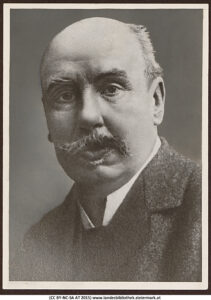First findings
Exploring interrogations & psychology in the German-speaking world
Almost two months into the project, I’ve mainly been exploring German-language publications on criminal interrogation and forensic psychology from around 1900. Here I’ll try to formulate some of my initial findings about the role of psychology in criminal interrogation and the relationship between jurists and psychologists.
Most strikingly: Germans and Austrians wrote a lot about criminal interrogation and particularly about forensic psychology (or criminal psychology) in the decades after 1900. I have collected 62 relevant books and articles so far between 1900 and 1940; but this is certainly not a comprehensive set (and it excludes publications that do not or very briefly deal with suspect interrogation). In comparison, the decades before were quite barren. After the flurry of studies on the ‘art of interrogation’ (or ‘Inquisitionskunst‘) in the first half of the nineteenth century (e.g. by Wilhelm Snell, Carl Mittermaier, Ludwig von Jagemann), the silence on interrogations in the second half of the nineteenth century seems to signal the procedure’s waning importance. The German legal reforms of 1848 and 1879 greatly restricted the actions investigating judges were allowed to take during interrogations. They should listen to the defendant’s story rather than ask cunning questions aimed at getting a confession.
It remains to be seen to what extent this normative view was put into practice. But it does become clear that by the 1890s, a solution was found: the police increasingly took over the main investigative parts of criminal procedures, and they were not bound by the legal rules for judges. They could – and by all indications did – still use cunning interrogation techniques.
Nevertheless, interrogation was becoming just one among a series of criminal investigation techniques. In 1893, the Austrian jurist Hans Gross published a handbook for investigating judges, a ‘system of criminalistics’. The handbook contained a dozen pages on suspect interrogations, but also included insights from chemistry, mineralogy, photography, cryptography and many other disciplines that could be useful for criminal investigation. It was highly successful: many subsequent editions and translations followed.
A few years later, Gross supplemented his handbook with an introduction to ‘Criminal Psychology’ (1898). He saw criminal psychology as a discipline that could grow wider in scope than its previous focus on the motives and psychological conditions of criminals. Criminal psychology, Gross argued, should be ‘a pragmatic applied psychology as will deal with all states of mind that might possibly be involved in the determination and judgment of crime’ (Gross, Criminal Psychology, Eng. trans. of 1918, p. 3). Including, therefore, criminal interrogations.
Hans Gross’ two volumes have influenced much of the work on forensic psychology and criminal interrogation in the early-twentieth-century German-speaking world. Gross’ own journal, the Archiv für Kriminal-Anthropologie und Kriminalistik, published several studies in this vein, as did other criminal justice journals. In general, psychologically-interested jurists gave more attention to witness interrogations than to suspect interrogations. The key exception was Albert Hellwig’s Psychologie und Vernehmungstechnik (1927). Like Hans Gross himself, most of the authors of these studies were jurists, and they mainly wrote from their own experiences and analyses. They were often enthusiastic about psychology, but also sceptical about the applicability of what experimental psychologists claimed.
In so far as I’ve been reading now, the sceptical feeling was largely mutual. Some experimental psychologists such as William Stern and Max Wertheimer believed that they had important insights to offer to jurists, but complained that jurists rarely ventured beyond ‘vulgar psychology’. One of Wertheimer’s experiments, which consisted of associational tests to assess someone’s guilt, sparked much debate, but was almost never used in practice. (Although it did inspire the development of the so-called ‘lie detector’ in the US – but that is another story.)
Many psychologists with an applied focus abandoned forensic psychology in the 1930s (Heather Wolffram discusses this in her excellent bookon forensic psychology in Germany). Jurists, for their part, increasingly returned to the more traditional framing of interrogation psychology as ‘interrogation technique’. They still mentioned psychology, but mostly psychology as developed by jurists. Psychology was more a ‘way of thinking’ than a series of insights from a specific discipline with experimental methods. That being said, concepts and terminology from scientific psychology and psychoanalysis certainly made its way into legal analyses.
There are interesting parallels here with the period right after 1800, which I’ve written about elsewhere. As in the early 1800s, the early 1900s witnessed an increased interest in psychology among jurists and in criminal justice among psychologists. In both cases, when it came to discussing criminal interrogations, it was mostly jurists themselves who carried the torch, borrowing insights and concepts from the other discipline to do so. But in the early 1900s, lay psychology and scientific – experimental – psychology were growing more apart than around 1800. This seems to have caused more friction on both sides, especially when psychologists proposed counter-intuitive approaches to criminal investigation.
Over the coming weeks, I’ll continue searching for and reading relevant publications, and I hope to carry out a deeper analysis of where jurists got their psychological ideas from. And then the most exciting parts of the research still have to come: seeing how the ideas in the German literature compare to and circulated in France and the Netherlands, as well as how they were applied in practice.




